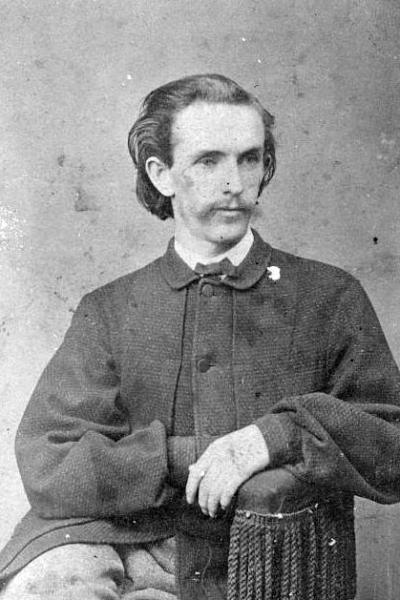The U.S. Supreme Court case Ex parte Milligan rules against the use of military tribunals in areas where civilian courts are established, resulting in important implications for one of the accused Lincoln assassination conspirators. In the case, which involves the trial and sentencing of five men accused of stealing Union arms and attempting to liberate Confederate prisoners of war in Indiana, the court upholds the suspension of habeas corpus for civilians, but only to hold suspects without trial, not to actually try and sentence them in military tribunals without regular due process of law. The ruling has broader implications for military rule in the South, which continues as a part of Reconstruction while Southern state governments and court systems are rebuilt.
One of the accused conspirators in the assassination of President Lincoln, John H. Surratt Jr., is quite possibly spared by this court ruling; especially considering that his mother, Mary Surratt, had been convicted and executed by a military tribunal in 1865 on the basis of questionable evidence. John was initially a suspect as well, but he escapes by seeking refuge at St. Liboire in Montreal, Canada, where he uses connections with the Catholic Church and with former-Confederates to book passage to Liverpool, England. He then ends up serving as a Pontifical Zouave in Rome (part of a French Army guard for the Papal States). On November 7, 1866, Surratt is recognized and arrested, but he somehow manages to escape and make his way to Alexandria, Egypt, where he is finally arrested on November 23, 1866 and brought back to the United States for trial.
Due to Ex parte Milligan, John is tried in a civilian court in Maryland, where his attorney admits to John's involvement in the original plot to kidnap Lincoln, but not in the assassination plot. In his trial, the evidence is considered shaky, and he is released due to a mistrial. Due to his long elusion of authorities, the statute of limitations has expired for any charges not relating to the assassination, and John H. Surratt Jr. remains a free man until his death from pneumonia on April 21, 1916.


